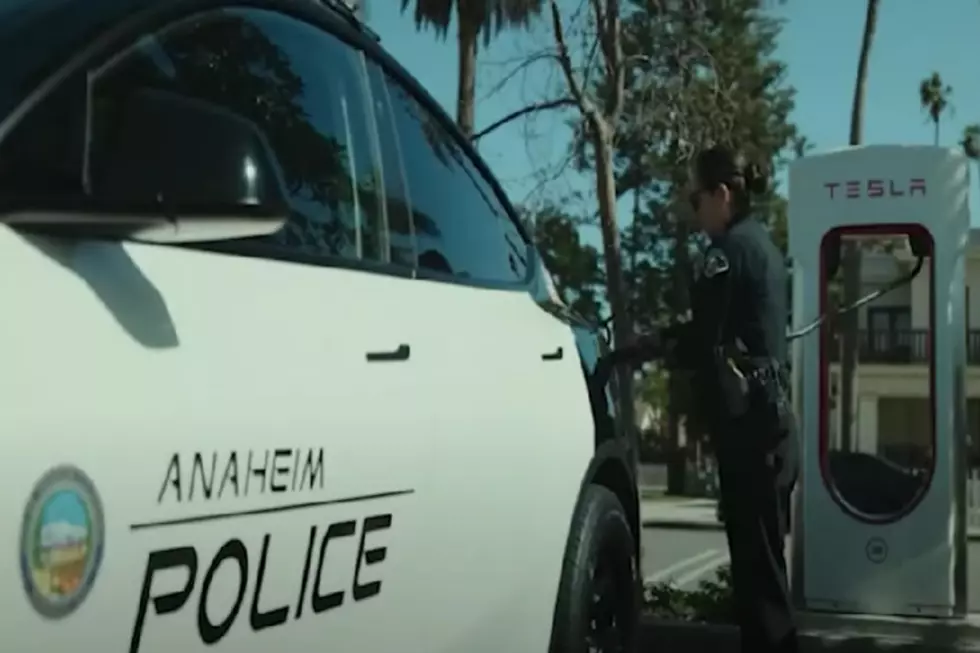
How the Police Turned Hookers Into a Hit: The Story of ‘Roxanne’
The Police's journey toward fame began on April 7, 1978, with the release of their first major-label single, "Roxanne." That's not to say the song was an overnight hit – far from it. It took a long time for the track to eventually find its place among the most recognizable rock songs of all time.
The inspiration for "Roxanne" can be traced back to October 1977. The Police were in Paris for a performance, tirelessly trying to make a name for themselves.
"We were supposed to do this shitty little gig with the Damned," guitarist Andy Summers recalled to Classic Rock decades later. "And we’d driven to Paris from Holland in my Citroen Dyane 6. The night before, we all went our separate ways and Sting was wandering around, looking at all the hookers."
"It was the first time I’d seen prostitution on the streets, and those birds were actually beautiful," Sting explained in 1981. "I had a tune going around in my head, and I imagined being in love with one of those girls."
The Police frontman was further inspired when he noticed a poster in his hotel's lobby for Cyrano de Bergerac. In the classic play, Cyrano pines for his unrequited love: Roxanne.
With Sting's melody and red light district-inspired lyrics, the song began taking shape. Drummer Stewart Copeland helped the structure evolve to a tango sound, and Summers added its distinctive guitar parts.
"We started playing around with it," Summers recalled, "and came up with something where I was able to play four-in-the-bar, Stewart put that slight reggae thing on, and Sting changed where he put the bass beats. We worked it up in one afternoon."
Listen to the Police's 'Roxanne'
Still, "Roxanne" stood out from the band's other material up to that point. It wasn't until the Police began recording their debut album, Outlandos d'Amour, that the song's potential sparked.
"We recorded a few tracks, one of which I wrote more or less as a throwaway. That was 'Roxanne,'" Sting recalled in A Visual Documentary. "I didn't think much more about it until we played the album to Miles Copeland, who is, of course, Stewart's brother and a bit of an entrepreneur."
Miles, who became the band's manager and fronted money for the recording sessions, immediately heard something in "Roxanne" and insisted it could be a hit.
"When I heard it, I said: 'My God, this is it!'" Miles Copeland recalled to the Los Angeles Times. "I heard that song and a lightbulb went off in my head — reggae, punk and pop all mixed into one. What a great idea! If I had to zero in on a moment that changed my life — and theirs — it was that moment in the studio when I first heard 'Roxanne.' That started the ball rolling."
Miles Copeland took the song to A&M Records and was able to secure the band a deal to have it issued as a one-off single. Upon its initial release, however, "Roxanne" received very little attention. It was the Police's next single, "Can't Stand Losing You," that finally landed them on the U.K. chart, peaking at a modest No. 42. But when "Roxanne" was released outside of the band's homeland, it grabbed people by the ear. In early 1979, it made it to the U.S. and climbed as high as No. 32 on the Billboard Hot 100.
It had similar success in Canada, the Netherlands and New Zealand. The song's overseas popularity prompted a reissue single in the U.K. in April 1979. This time, the track climbed to No. 12, giving the Police their first bona fide hit.
Watch the Police Perform 'Roxanne' in 1980
In the decades since its release, "Roxanne" has become the Police's signature song. It's appeared on all of their greatest hits compilations, been covered by a wide range of artists appeared in Baz Luhrmann's 2001 film Moulin Rouge! When the band was inducted into the Rock & Roll Hall of Fame in 2003, the song was part of the set list.
"Before 'Roxanne' we were just an unknown band with no legs at all," Summers admitted. "Then everything seemed to accelerate. It went like a rocket once we started going."




